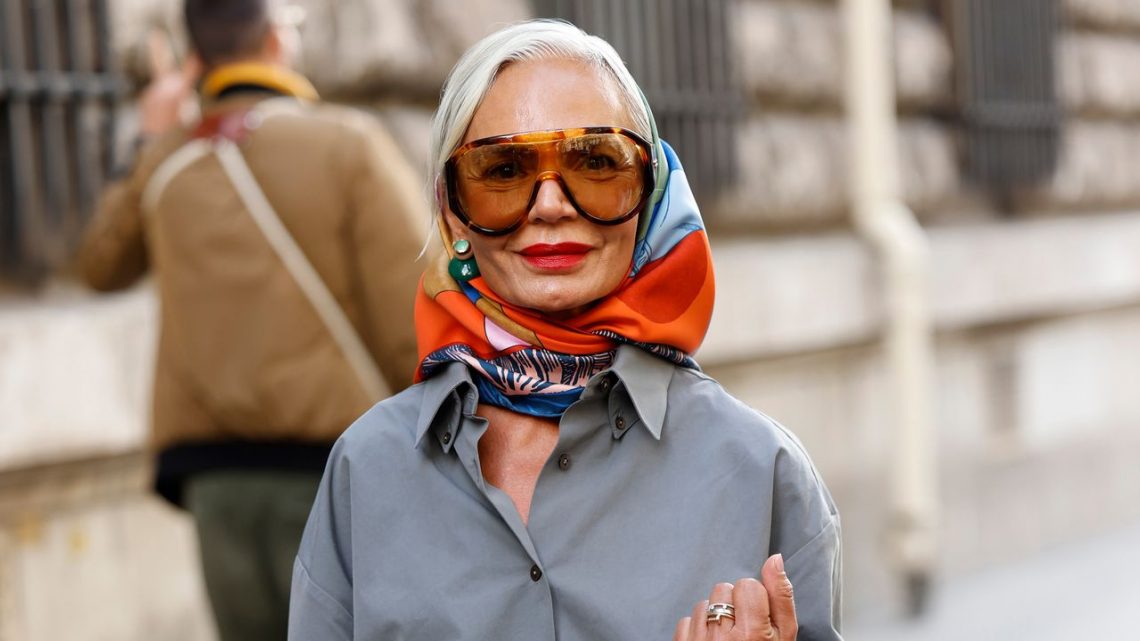
The Best Sunscreen For Mature Skin, According To Dermatologists
While dermatologists recommend wearing a broad-spectrum SPF of 30 and above every day — to everyone — the best sunscreen for mature skin goes a step beyond shielding the skin from UVA and UVB rays. Leaving no trace of white cast is a minimum requirement for the new generation of expert-approved sunscreens, which also nurture ageing skin with everything from radiance-boosting vitamins to DNA-repair enzymes and botanicals that hydrate and plump. But above all, the best sunscreen for any type of skin will be one that’s a treat to apply, which is why Vogue’s top formulas offer both sensorial delight and serious sun protection.
Featured in this article

“It’s important to choose a sunscreen that feels comfortable and works seamlessly with your skin type,” notes aesthetician, skincare formulator and brand founder Emme Diane Burg. “If it’s pleasant to wear, you are far more likely to apply it consistently every morning — and consistency is what ultimately protects your skin.” To help you find an SPF that applies like a dream, be it chemical, mineral or tinted, we turned to the pros for their expert and science-backed recommendations.
Ahead, find the sunscreens dermatologists heartily suggest to mature patients — and wear themselves. From top brands like SkinCeuticals and Augustinus Bader, these formulas will help the skin glow from within. Sun safely!
In this article:
Augustinus Bader The Mineral Sunscreen SPF 50
SkinCeuticals Ultra Facial Defense SPF 50+ Facial Sunscreen for Ageing Skin
La Roche-Posay Anthelios UVAir Daily Invisible Fluid SPF50+
Medik8 Advanced Day Ultimate Protect SPF50+
Neutrogena Hydro Boost Water Gel Lotion Sunscreen 50
MDSolarSciences Mineral Tinted Crème
FAQs
What’s the best sunscreen for ageing skin?
Because mature skin is more prone to dryness and sensitivity, Dr Collins recommends seeking out a formula that not only provides broad-spectrum sun protection but nourishes the skin with hydrating and reparative ingredients. The sunscreens on this list, from dermatologist-approved brands such as Augustinus Bader and SkinCeuticals, check every box.
What to look for in a sunscreen for mature skin
“Skin can lose its ability to maintain moisture as we age, and mature skin often needs more hydrating skincare products,” says Dr Black. “This means that sunscreen itself should be more hydrating or easily layered on top of a moisturising cream.” (For instance, Neutrogena Hydro Boost Water Gel Lotion Sunscreen 50 contains hyaluronic acid and glycerin.) Dr. Black adds that any sunscreen should have an SPF 30 or higher and offer broad-spectrum protection.
Burg gives extra points to sunscreens that feature a PA+ to PA+++ on the label. “PA+++ is a grading system that focuses on UVA testing,” she says. “If you notice PA+ on your label, the product offers some protection against UVA rays, which are the ‘ageing’ rays that cause damage and cancer. As the symbols increase, so does the level of UVA protection. So in this instance, the higher ratings, such as PA+++, are better in terms of sun protection,” she says.
Finally, a formula that’s fragrance-free is always a plus for mature skin. “In general, I recommend patients avoid sunscreens and other products with fragrances or other unnecessary ingredients that could potentially cause irritation,” Dr Black says. And for patients of any age who are more active and might be exercising or swimming, she always recommends a water-resistant sunscreen.
Are chemical or mineral sunscreens best for mature skin?
“Mineral sunscreens are the safest and only type of sunscreen that I recommend for not only safety concerns, but also their ability to block both UVA and UVB rays for broad-spectrum protection,” says Justine H. Park, MD, a board-certified dermatologist at Skin and Beauty Center in West Hills, California. Dr. Black adds: “Mature skin can be more sensitive, and for patients who might have potential sensitivities to the ingredients in chemical sunscreens, mineral formulas might be preferred.”
However, Burg argues that chemical sunscreens can do more good than harm for mature skin. “Many people assume that mineral or physical sunscreens are inherently ‘non-toxic,’ while chemical sunscreens are ‘toxic’,” she says. “However, the reality is more nuanced. In certain situations — such as extended sun exposure or harsher outdoor conditions — a chemical sunscreen may offer more reliable protection. Physical sunscreens can be easily compromised if the protective barrier is inadvertently wiped away, for instance by sweat, friction from clothing, or even the straps of a backpack.” In short, she says, choosing between a chemical and mineral sunscreen should involve case-by-case analysis. For Burg herself, she often wears a mineral sunscreen on her face and a chemical sunscreen on her body, particularly if she’s spending time outside.
- Jeanette M. Black, MD, is a board-certified dermatologist and fellowship-trained cosmetic dermatologic surgeon serving patients at UnionDerm’s Hamptons and Central Park offices.
- Kristina Collins, MD, FAAD, is a board-certified dermatologist specialising in Mohs micrographic surgery, as well as surgical and cosmetic dermatology.
- Emme Diane Burg is an aesthetician, skincare formulator, and the founder of Emme Diane skincare.
- Ellen Gendler, MD, is a board-certified dermatologist based in New York City.
- Corey L. Hartman, MD, is a board-certified dermatologist and founder of Skin Wellness Dermatology in Birmingham, Alabama.
- Deanne Mraz, MD, FAAD, is a board-certified dermatologist and the president and co-founder of DMRResearch and Modern Dermatology in Westport, Connecticut.
- Justine H. Park, MD, is a board-certified dermatologist at Skin and Beauty Center in West Hills, California.
- Tia Paul, MD, is a board-certified dermatologist and the founder of Balanced Skin Dermatology in Newport Beach, California.





